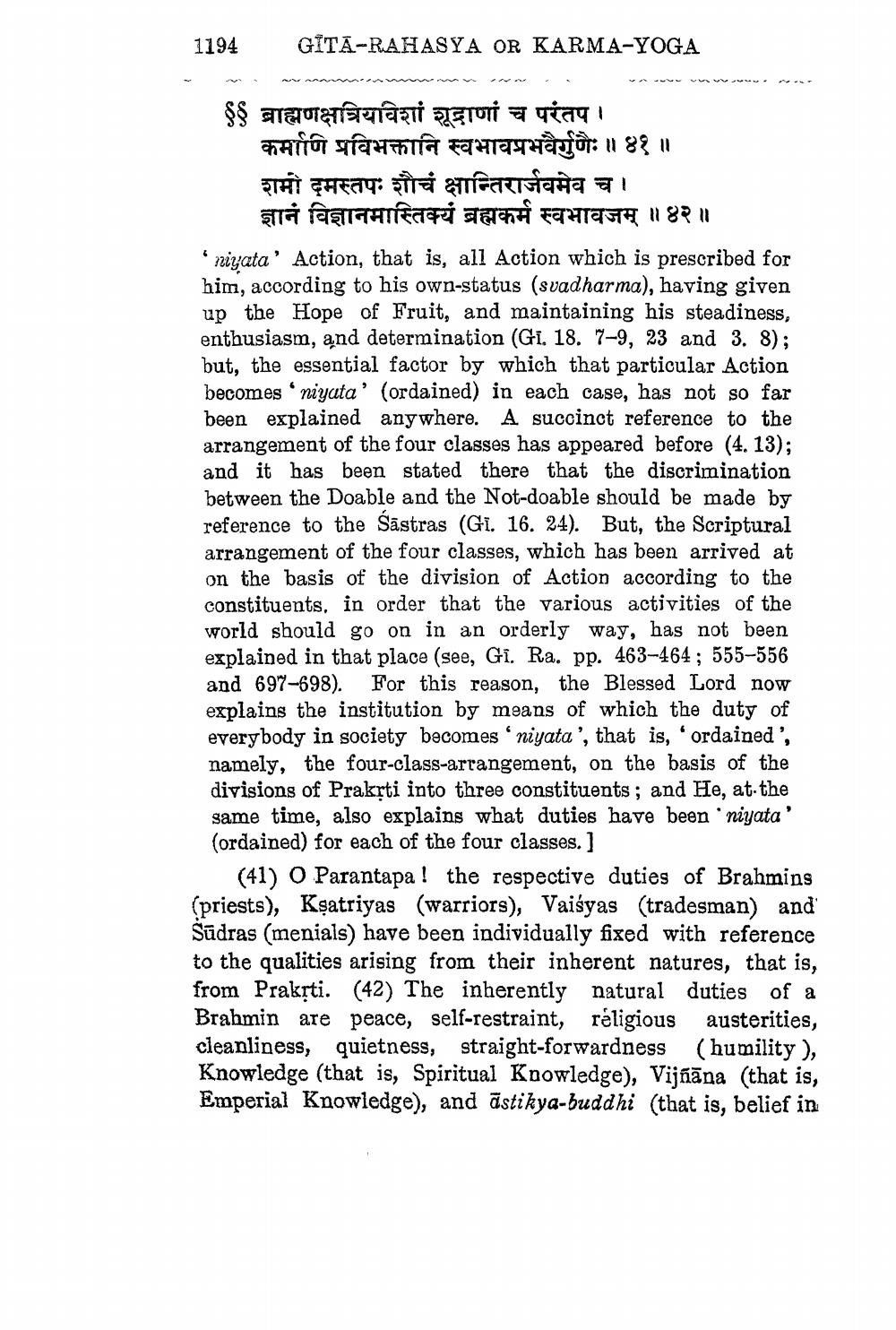________________
1194
GITA-RAHASYA OR KARMA-YOGA
६ ब्राह्मणक्षत्रियविशां शूद्राणां च परंतप ।
कमाणि प्रविभक्तानि स्वभावप्रभवैर्गुणैः॥४१॥ शमो दमस्तपः शौचं क्षान्तिरार्जवमेव च ।
ज्ञानं विज्ञानमास्तिक्यं ब्रह्मकर्म स्वभावजम् ॥४२॥ niyata' Action, that is, all Action which is prescribed for him, according to his own-status (svadharma), having given up the Hope of Fruit, and maintaining his steadiness, enthusiasm, and determination (Gi. 18. 7-9, 23 and 3. 8); but, the essential factor by which that particular Action becomes 'niyata' (ordained) in each case, has not so far been explained anywhere. A succinct reference to the arrangement of the four classes has appeared before (4. 13); and it has been stated there that the discrimination between the Doable and the Not-doable should be made by reference to the Sāstras (Gi. 16. 24). But, the Scriptural arrangement of the four classes, which has been arrived at on the basis of the division of Action according to the constituents, in order that the various activities of the world should go on in an orderly way, has not been explained in that place (see, Gi. Ra. pp. 463–464 ; 555-556 and 697-698). For this reason, the Blessed Lord now explains the institution by means of which the duty of everybody in society becomes ' niyata', that is, ordained', namely, the four-class-arrangement, on the basis of the divisions of Prakrti into three constituents; and He, at the same time, also explains what duties have been 'niyata' (ordained) for each of the four classes. ]
(41) O Parantapa ! the respective duties of Brahmins (priests), Ksatriyas (warriors), Vaiśyas (tradesman) and Šūdras (menials) have been individually fixed with reference to the qualities arising from their inherent natures, that is, from Praksti. (42) The inherently natural duties of a Brahmin are peace, self-restraint, religious austerities, cleanliness, quietness, straight-forwardness (humility ), Knowledge (that is, Spiritual Knowledge), Vijñāna (that is, Emperial Knowledge), and ästikya-buddhi (that is, belief in




